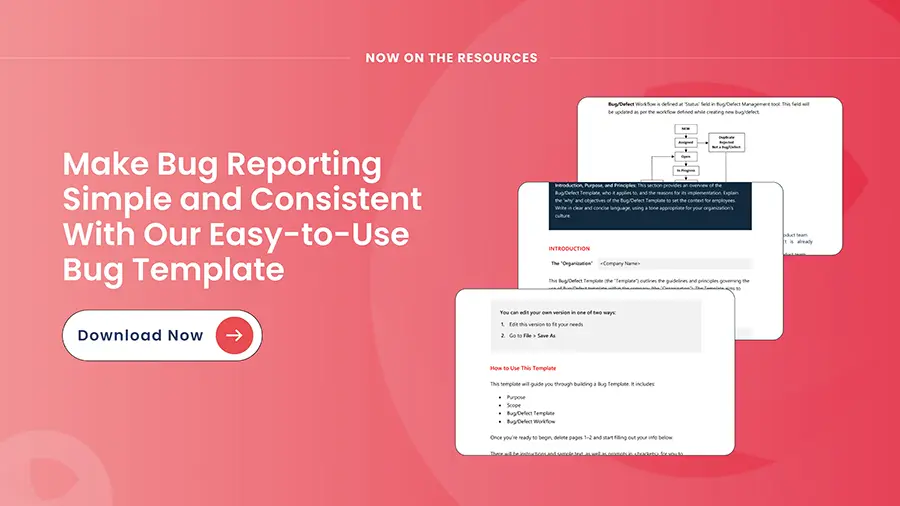In 2023, we witnessed the rise of artificial intelligence (AI) and now, as we step into 2024 the focus shifts to seamlessly integrating AI into our daily lives, and that even implies to software testing. Ever since the introduction of OpenAI’s ChatGPT in November 2022, AI has been making waves, impacting various sectors like content creation, image processing, and code production. Let’s take a look at what lies ahead for the Software Quality Assurance industry in 2024.
Test Automation: A Necessity, not a Choice
In 2024, Test Automation is poised to become a cornerstone of software development. With developers increasingly relying on AI-powered copilot tools to accelerate code production, the risk profile of software releases is on the rise. To match the pace of development and avoid becoming bottlenecks in the Software Development Life Cycle (SDLC), testers are expected to embrace AI-powered testing tools. The goal is to align testing processes with efficiency gains achieved by developers using AI, ensuring robust software quality.
Test Automation is not just about speed—it’s about reliability. As software becomes more complex, relying solely on manual testing introduces the potential for human error and lack of oversight. Test Automation Tools powered by AI, provide a consistent and systematic approach to testing. They can execute repetitive tests accurately and identify issues early in the development process, contributing significantly to the overall reliability of the software.
Evolving Role of Testers in the AI Era
Increased use of AI in testing processes brings efficiency gains, but it also poses challenges. Testers must strike a delicate balance between leveraging AI’s capabilities and avoiding excessive time spent on validating outputs. While AI facilitates faster code production, the discerning eye of an experienced engineer remains crucial to assess the quality and usability of AI-generated code or tests.
In 2024, a surge in demand is anticipated for skilled workers with domain-specific knowledge. These professionals will play a pivotal role in evaluating the coherence and usefulness of AI-generated output within specific business applications. Striking a balance between leveraging AI’s capabilities and avoiding inefficient time expenditure on validating outputs will be essential for optimal performance.
In 2024, there will be a high demand for skilled workers with specific domain knowledge who can parse through the AI-generated output and determine if it’s coherent and useful within the specific business application. Although this is necessary for developers and testers to start trusting what the AI generates, they should be wary of spending inefficient amounts of time constructing AI prompts, as this can ultimately lead to decreased levels of performance.
– Katalon
Streamlining Software Testing with AI-Driven Test Case Generation
In 2024, artificial intelligence (AI) is set to revolutionize test case generation in software testing. By automating the process based on requirements, specifications, and historical data, AI-driven tools promise to reduce manual effort, improve test coverage, and enhance reliability. This shift towards AI-powered test case generation is expected to significantly impact the efficiency and effectiveness of software testing, enabling teams to deliver higher-quality products faster.
While AI-driven test case generation holds great promise, there are some challenges and considerations which organizations should be aware of.
Quality of Input Data: The accuracy and quality of the input data (e.g., requirements documents) are crucial for effectiveness of AI-driven test case generation. Garbage-in, Garbage-out applies here, thus ensuring clean and well-structured input data is essential.
Pro Tip – Organizations should focus on improving the quality of their input data. This can be achieved by implementing processes for data validation, standardization, and cleansing.
Human Oversight: While AI can automate many aspects of test case generation, human oversight is still necessary to review and validate the generated test cases, especially in complex or critical systems.
Pro Tip – Establish clear guidelines and processes for human review and validation of AI-generated test cases, especially in complex or critical systems. This can involve incorporating review checkpoints in the testing workflow and provide training to testers on how to effectively validate AI-generated test cases.
Skillset Requirements: Adopting AI-driven test case generation may require additional skills and expertise within the testing team, including knowledge of AI technologies and data analysis techniques.
Pro Tip – Provide training and development opportunities for testers to acquire necessary knowledge of AI technologies and data analysis techniques.
Key Benefits QA Teams Will Reap in 2024
- Rapid Precision: Accelerating Timelines with AI The demanding pace of software development necessitates swift testing without compromising accuracy. AI-driven test automation solutions excel in detailed scans of log files and code within seconds, outperforming manual testing. This rapid identification of flaws not only speeds up the process but also ensures unwavering accuracy. The tireless nature of AI guarantees consistent results, eliminating the risk of human errors and providing QA engineers the freedom to concentrate on critical components and new feature testing, thereby enhancing overall productivity.
- Adaptive Automation: Unleashing AI’s Prowess As software complexity grows, traditional QA approaches struggle to keep up with expanding codebases. AI bots, however, bring adaptability to the forefront. They not only navigate seamlessly through the programming landscape but also discern between new features and code flaws resulting from changes, ensuring system stability. The adaptability of AI extends to Test Automation platforms, dynamically enhancing their capabilities. Visual testing, in particular, benefits from AI’s swift evolution, ensuring seamless adaptation to sophisticated change detection scenarios.
- Client-Centric Precision: Understanding User Needs with AI Effectively meeting client requirements is at the core of software testing. AI takes center stage by analyzing competing products and related websites, identifying critical success factors. Testers leverage AI to pinpoint common code errors that could impede seamless software operation. By comprehending client needs, AI assists in developing robust test cases, ensuring the product aligns seamlessly with user expectations.
- ChatGPT in Automated Testing: A Trailblazer in 2024 In the dynamic landscape of Test Automation trends, ChatGPT, powered by AI, has emerged as a trendsetter in 2023. Its unique ability to generate text in diverse formats, including structured data and code snippets, revolutionizes processes like code development and testing. Code generation aids novices in learning syntax, while code completion and explanation benefit both beginners and seasoned professionals, marking a significant shift in Test Automation approaches.
- Cost and Time Efficiency: AI’s Impact on Manual Testing Manual testing is synonymous with tedious, repetitive work, demanding both time and financial resources. In contrast, an AI-powered testing system executes these activities routinely and without additional costs. The swiftness of software testing driven by AI not only promotes time efficiency but also directly contributes to cost reduction, a crucial advantage in today’s competitive development landscape.
In Conclusion: Embracing the AI-Infused Future of Software Testing
AI injects agility and precision into software testing. From automating mundane tasks to predicting potential issues, AI empowers software development teams to enhance quality, accelerate delivery, and stay competitive in the dynamic tech arena. As the benefits of AI in software testing continue to evolve, its synergy with quality assurance promises to redefine the way we approach software excellence.
What to Expect & Prepare for in 2024
- Automated Test Case Generation: AI algorithms analyze system requirements and use cases to automatically generate comprehensive test cases. By doing so, AI significantly increases testing coverage and allows human testers to focus on more complex and strategic testing activities.
- Intelligent Test Execution: AI enables smarter test execution by dynamically adjusting test data and variables based on real-time conditions. This adaptive approach reduces the need for manual intervention and enhances the robustness of test scenarios.
- Test Environment Virtualization: AI-driven tools simulate complete test environments and data, eliminating the need for physical infrastructure. This virtualization capability enables parallel testing across diverse environments, leading to faster testing cycles and cost savings.
- AI-Powered Defect Clustering: AI’s pattern recognition capabilities group similar defects together, helping testers prioritize and address issues more effectively. By identifying common root causes, AI assists in improving overall software quality.
- Self-healing for Test Automation: AI-powered self-healing mechanisms can automatically detect and fix broken test scripts and suites. By learning from past runs and log files, AI ensures that automation remains robust and requires less maintenance.
- Predictive Analytics for Test Coverage: Advanced analytics models predict areas of the system with inadequate test coverage. This predictive approach helps teams identify gaps and prioritize additional test case development to ensure comprehensive coverage.
To know more about AI based testing reach us at marketing@enhops.com




